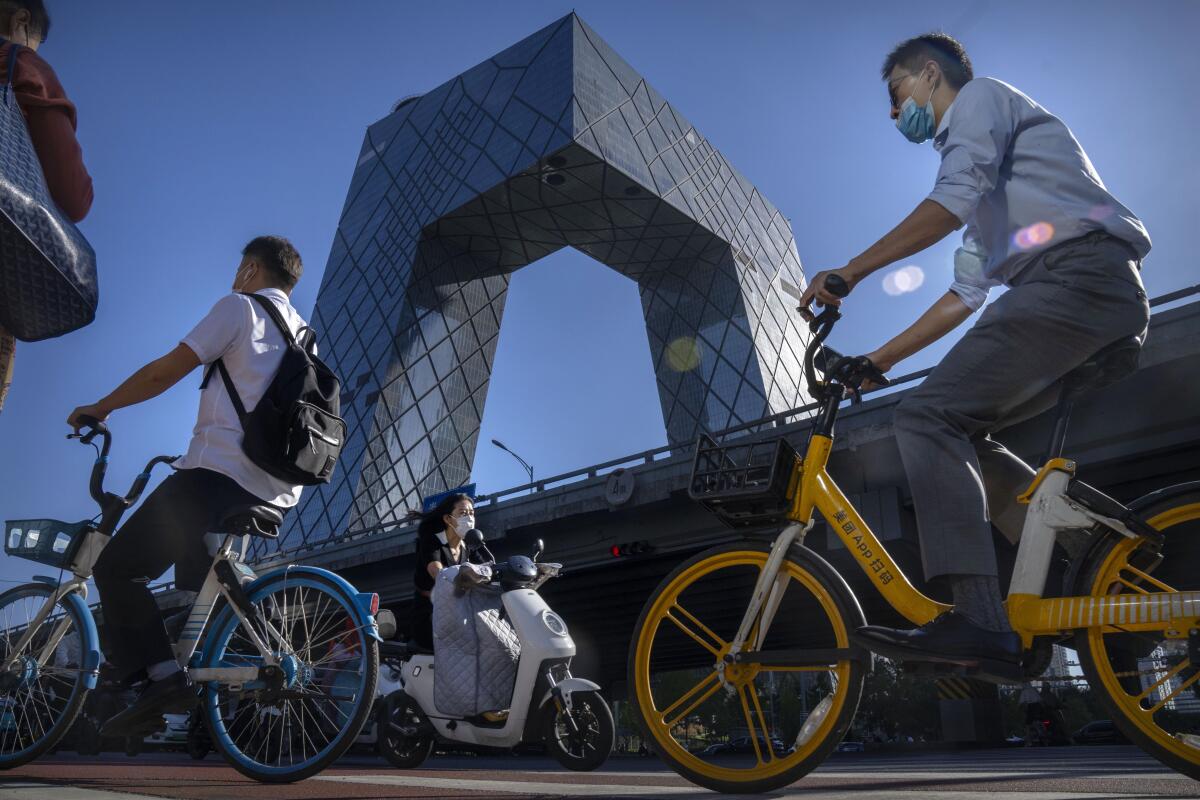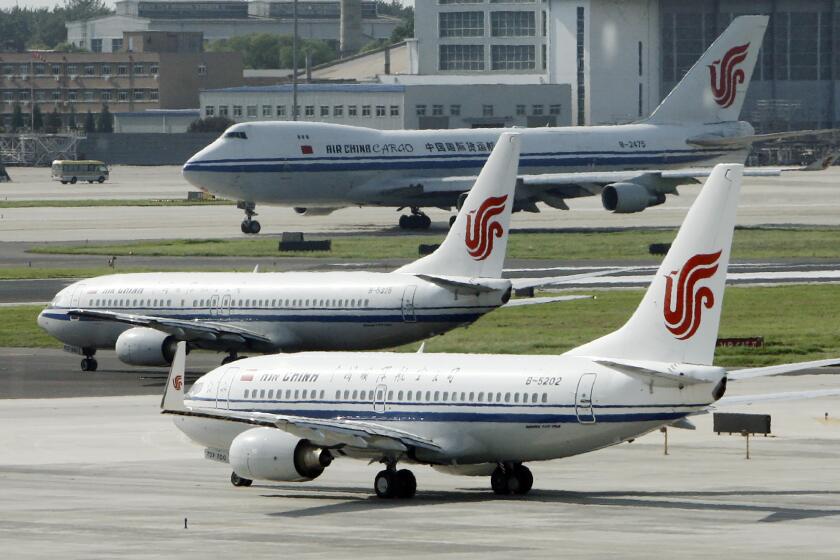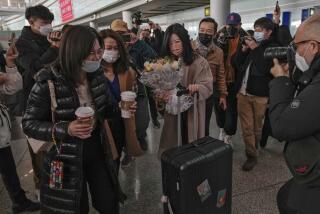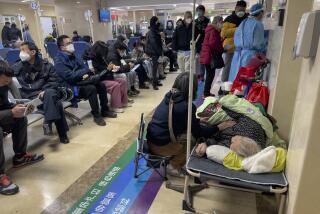China locks down Chengdu, a city of 21 million people, amid COVID-19 outbreak

- Share via
BEIJING — Chinese authorities have locked down Chengdu, a southwestern city of 21 million people, after a spike in COVID-19 cases.
Under rules announced Thursday, residents have been ordered to stay home, and about 70% of the flights have been suspended to
and from the city, which
is a major transit hub in Sichuan province and a governmental and economic center.
The start of the new school term has been delayed, although public transportation continues to operate and residents are permitted to leave the city if they can show a special need.
Only one member of each family, who must show a negative coronavirus test within the previous 24 hours, is allowed out per day to buy necessities.
The U.S. suspension of 26 flights by Chinese airlines follows a similar move by Beijing against American carriers in a dispute over COVID-19 controls.
No word was issued on when the lockdown would be lifted.
Similar measures have seen millions of people confined to their homes in the northeastern city of Dalian, as well as Shijiazhuang, the capital of Hebei province, which borders Beijing.
Chengdu has reported about 1,000 cases in the latest outbreak and no deaths from the latest round of domestic transmission, but the extreme measures reflect China’s rigid adherence to its “zero-COVID” policy, which has exacted a major toll on the economy, with lockdowns, business closures and mass-testing requirements.
China says the measures are necessary to prevent a wider spread of the coronavirus, which was first detected in the central Chinese city of Wuhan in late 2019.
The fear of being caught in a lockdown situation or sent to a quarantine facility for even being near a person who tested positive has severely constrained people’s work, consumption and travel habits.
More to Read
Sign up for Essential California
The most important California stories and recommendations in your inbox every morning.
You may occasionally receive promotional content from the Los Angeles Times.











